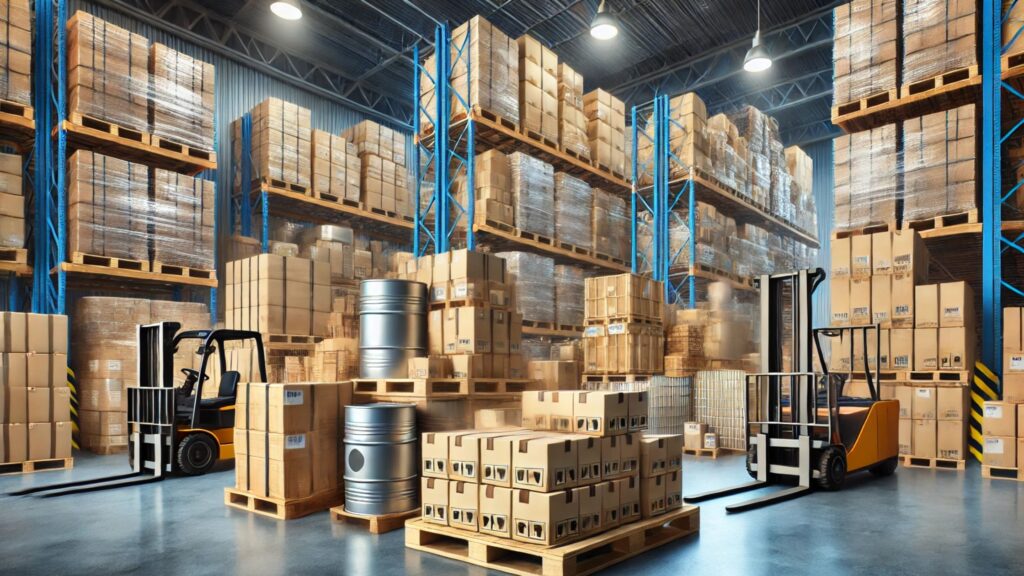Tertiary Packaging Examples: In the world of packaging, there are three primary types: primary, secondary, and tertiary packaging. While primary packaging is the first layer that comes in direct contact with the product, and secondary packaging is used for branding and grouping items together, tertiary packaging plays a crucial role in logistics, transportation, and bulk storage. In this blog post, we will explore various tertiary packaging examples and their importance in the supply chain.
What is Tertiary Packaging?
Tertiary packaging is the outermost layer of packaging used for handling, storing, and shipping bulk quantities of goods. It is designed to protect products from damage during transportation and ensure efficient handling and storage. This type of packaging is essential for large-scale distribution and helps streamline the supply chain process.
Common Tertiary Packaging Examples
1. Pallets
Pallets are one of the most common types of tertiary packaging. They serve as a stable platform for stacking multiple products, allowing easy handling by forklifts and pallet jacks. Wooden, plastic, and metal pallets are commonly used depending on the type of product and industry.
2. Corrugated Shipping Boxes
Corrugated shipping boxes are sturdy containers used to enclose multiple secondary-packaged items. These boxes provide additional protection during transit and help organize products efficiently in warehouses.
3. Shrink Wrap and Stretch Film
Shrink wrap and stretch film are essential for securing goods on pallets. They help stabilize loads, preventing movement during transportation, and protect against moisture, dust, and damage.
4. Crates and Containers
Wooden or plastic crates and large containers are commonly used for shipping fragile or bulky items. These provide a rigid structure that safeguards goods against impact and environmental factors.
5. Dunnage
Dunnage refers to packaging materials like airbags, foam inserts, and padding used to fill empty spaces within tertiary packaging. It prevents movement and absorbs shocks, reducing the risk of damage.
6. Slip Sheets
Slip sheets are thin, durable sheets made of plastic, fiberboard, or corrugated material. They are used as an alternative to pallets, reducing weight and saving space during shipping.
7. IBC (Intermediate Bulk Containers)
IBCs are large, reusable containers designed for storing and transporting liquids, granules, or powders. They are commonly used in industries such as chemicals, food and beverage, and pharmaceuticals.
8. Drums and Barrels
Metal or plastic drums and barrels are used for transporting liquids, chemicals, and bulk materials. They provide durability and protection against leaks and contamination.
Importance of Tertiary Packaging
- Protection: Safeguards goods from physical damage, environmental factors, and contamination.
- Efficiency: Facilitates easy handling, stacking, and transportation.
- Cost-Effective: Reduces shipping costs by optimizing space and minimizing product loss.
- Sustainability: Many tertiary packaging materials are reusable and recyclable, contributing to eco-friendly supply chain practices.
Conclusion: Tertiary Packaging Examples
Tertiary packaging is a critical component of the logistics and supply chain process. From pallets and crates to shrink wrap and IBCs, various tertiary packaging examples play a vital role in ensuring safe and efficient transportation. Businesses must choose the right type of tertiary packaging to protect their products, enhance efficiency, and minimize costs.
By understanding the importance of tertiary packaging, companies can optimize their distribution processes and maintain product integrity from warehouse to end destination.
Related Articles
- The Art and Science of Packaging | Trends, History & Future
- What is Tertiary Packaging? Definition, Purpose, and Benefits
- The Importance of Secondary Packaging Material in Modern Supply Chains
- Secondary Packaging Examples: Enhancing Protection and Presentation
- Primary and Secondary Packaging: Understanding Their Roles and Importance
- The Importance of Secondary Packaging Machinery in Modern Manufacturing
- Secondary Packaging in Pharmaceutical Industry: Importance & Innovations
- What Is Secondary Packaging? The Essential Guide for Businesses
- The Ultimate Guide to Popcorn Packaging: Innovation, Trends, and Sustainability
- The Art and Science of Honey Packaging: A Guide to Preserving Nature’s Sweetness

